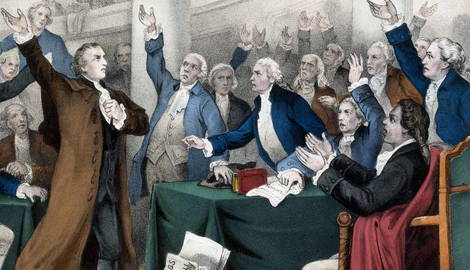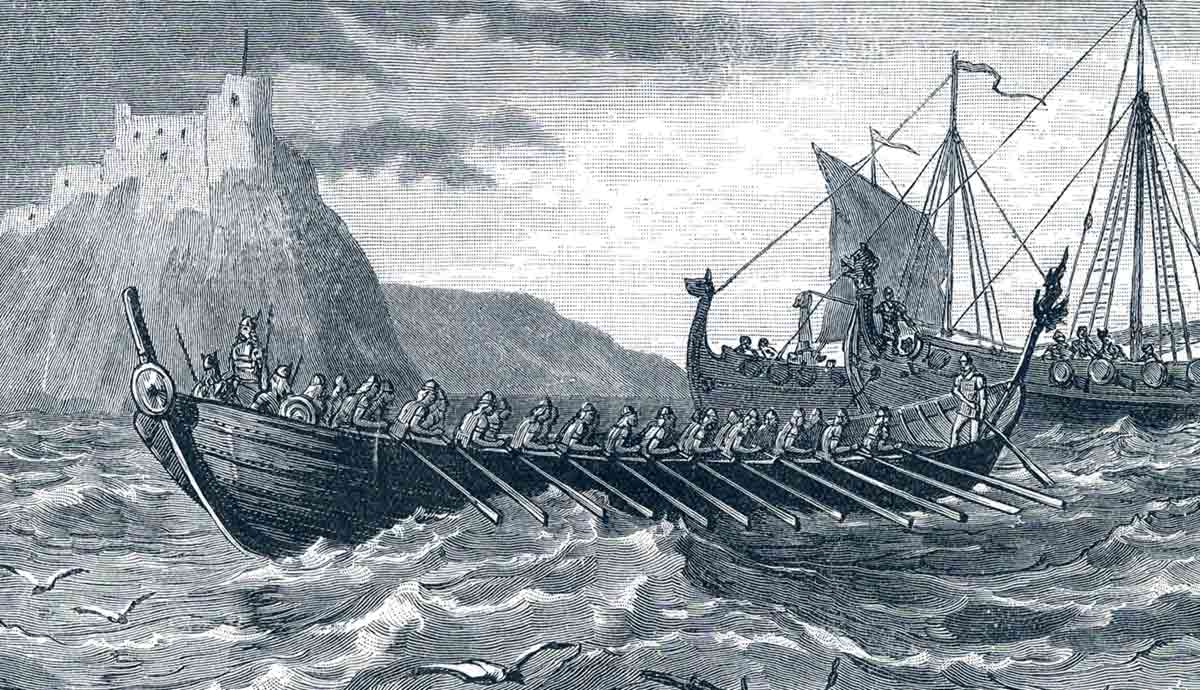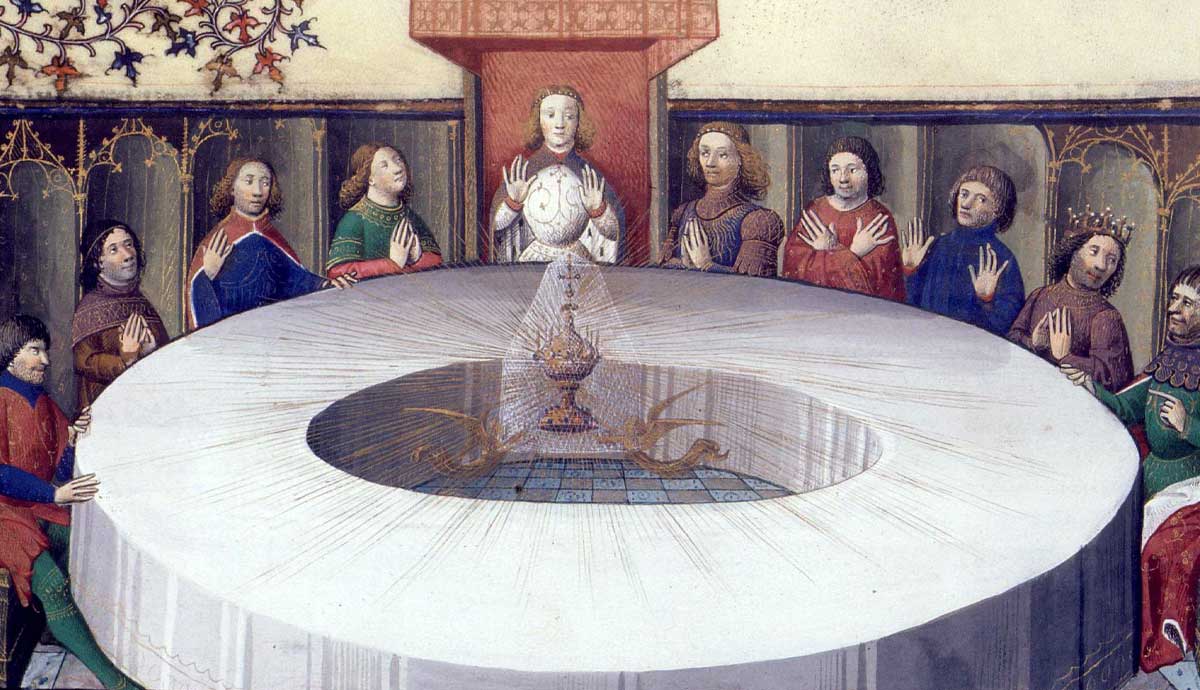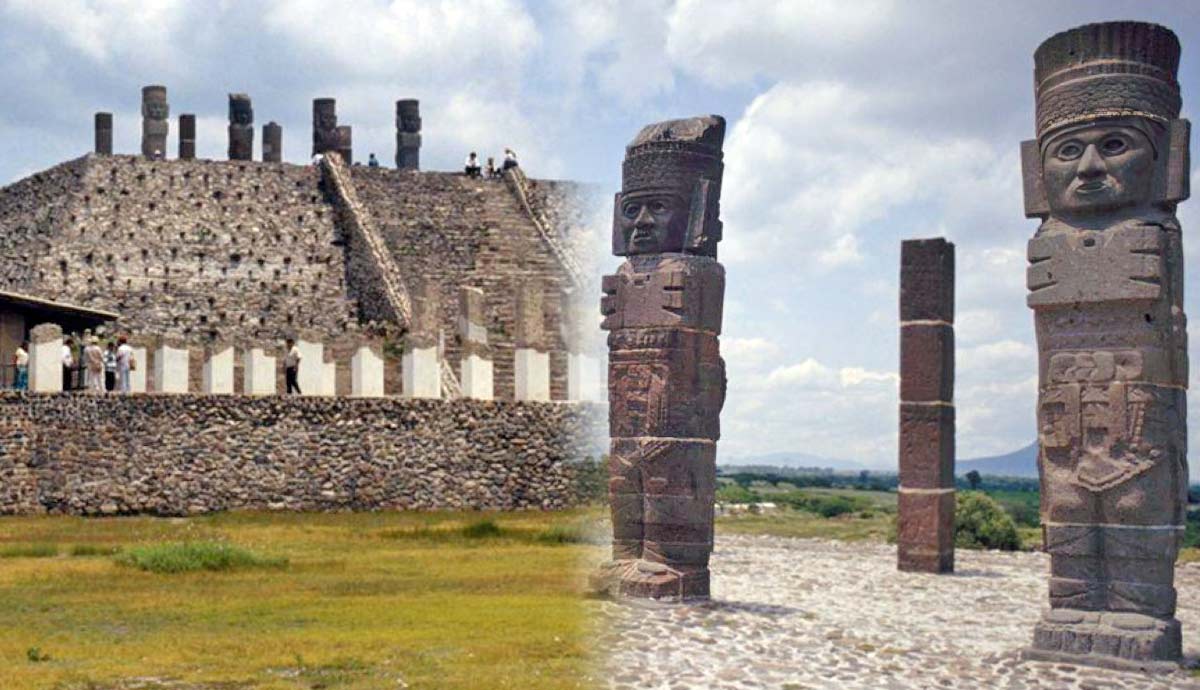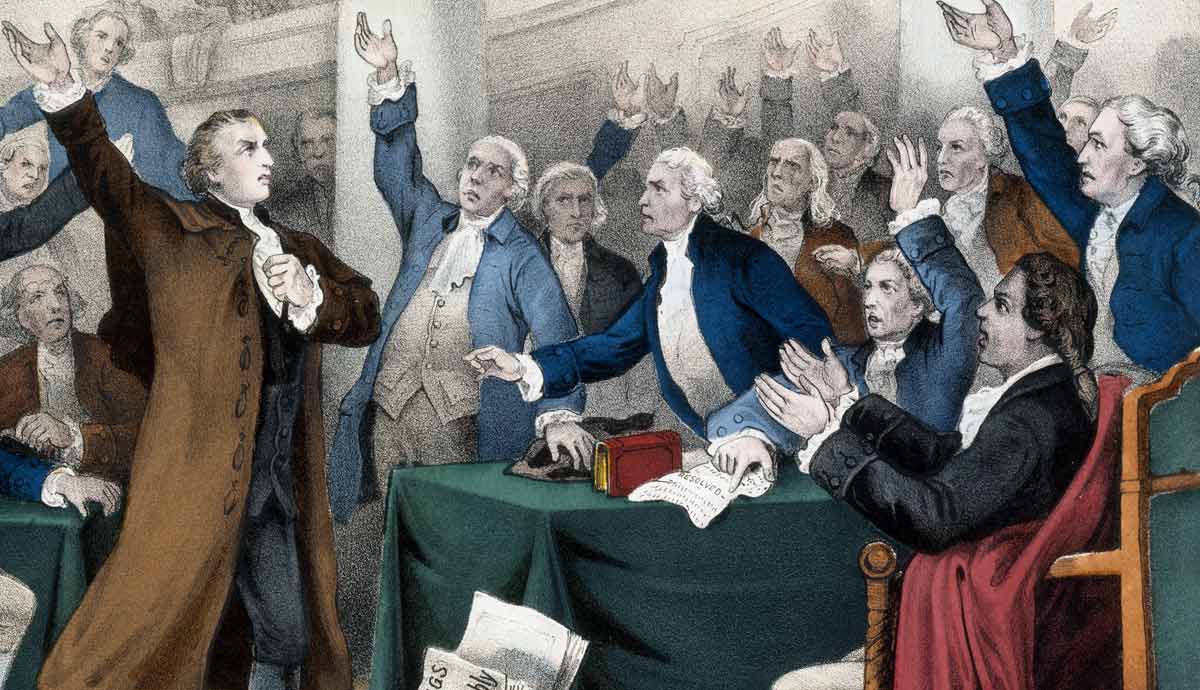
Two-and-a-half centuries after it was first delivered, Patrick Henry’s famous quote, “give me liberty or give me death,” lives on in American culture as a symbol of defiance against British colonial authorities intent on oppressing the 13 colonies. From a speech at the Virginia Convention of 1775 in the presence of many prominent American independence leaders, Henry’s proclamation inspired greater support for the Patriot cause in the American Revolutionary War, with both immediate and lasting influences in the following decades.
Historical Context

Patrick Henry made his famous remark in the context of the buildup of anti-British sentiment in the decade following the French and Indian War (part of the wider Seven Years War). Intent on recovering wartime expenditures through taxation, the British Parliament passed numerous controversial laws in the 1760s that escalated tensions with its colonies. Namely, the Stamp and Townshend Acts of 1765 and 1767 respectively charged Americans fees for everyday items like newspapers, glass, tea, and paint. Calls by the radical organizations such as the Sons of Liberty to end taxation without representation soon led to an outbreak of political violence.
In 1770, the first victims of the American Patriotic cause were martyred when British soldiers opened fire on a crowd of protestors in Boston, leaving five dead. Labelling the event as the Boston Massacre, American leaders exploited the incident to drive anti-British sentiment. Three years later, protestors disguised as Native Americans boarded British ships in Boston Harbor, dumping an entire shipment’s worth of tea overboard in opposition to the Tea Act. Now known as the Boston Tea Party, the event inspired a further crackdown on the rebellious colonies.
In response to the Boston Tea Party, the British passed the Intolerable Acts, increasing economic and political backlash against northeastern colonies, while allowing British soldiers to quarter in civilian homes. Soon, colonists organized formal meetings to discuss the fate of America. After the 1774 First Continental Congress concluded in a boycott of British goods, the Virginia Convention of 1775 allowed early Americans, including Henry, to discuss plans for independence and military action.
Who Was Patrick Henry?

Born on May 29, 1736, in Virginia, Patrick Henry was a self-educated lawyer. While a relatively unknown attorney early in his career, Henry soon gained widespread recognition as a fierce defender of colonial rights and talented orator by winning a legal battle against the British Crown in 1763. In a case now known as Parson’s Cause, the young lawyer successfully argued on the behalf of a colonial subject involving the Two Penny Act passed by the Virginia House of Burgesses and vetoed by King George III.
The Parson Cause increased Henry’s involvement in early political movements of the colonies, especially those supporting independence from Britain. Before the American Revolutionary War, Henry served as a representative for the Virginia House of Burgesses and as a delegate to both Continental Congresses, where his passionate speeches and logical reasoning helped decide the fate of the United States in its years-long struggle for freedom. Henry’s stirring quote, “give me liberty or give me death,” delivered at the Virginia Convention of 1775, made him one of the most eloquent promoters of American independence, but his contribution to the Patriot cause went much further than this slogan.
During the fight for independence, Henry was appointed as Virginia’s first postcolonial governor. During his term, Henry supplied the Continental Army and Virginia militia with state resources. Outside of war, Henry was a crucial contributor to Virginia’s Declaration of Rights, a document that greatly influenced the United States Bill of Rights shortly thereafter. Henry’s career as an anti-Federalist legislator and advocate for states’ rights continued until his death in 1799.
Give Me Liberty or Give Me Death: The 1775 Speech

In March 1775, Henry travelled to St. John’s Church in Richmond, Virginia. There, some of the colony’s most influential leaders including Thomas Jefferson, George Washington, and Richard Henry Lee gathered to debate the latest British actions and how Virginia should respond to them. Henry’s rhetorical skills stood out during the meeting with lasting effects.
During his passionate “give me liberty or give me death” speech, Henry communicated several key takeaways to the audience of patriots. Logically anticipating the conflict’s escalation after years of tensions, Henry voiced how the American Revolutionary War was an inevitable occurrence for the colonists. He warned against the futility of seeking political solutions and called the colonies to arms through his famous quote.
Without taking proactive action, Henry suggested that hopes for American independence weakened over time as Britain mobilized its military resources to suppress the Patriots. By personally proclaiming a willingness to sacrifice his own life, Henry’s call to arms resonated with the overarching sentiment of the prewar era.
In addition to practical political and strategic considerations, Henry’s speech encouraged support for Patriot causes by appealing to God. Henry argued that American independence was a righteous cause sanctioned by God. This appeal, combined with Henry’s reputation, reasoning, and oratorical skills, made a lasting impression on the leaders of the early American republic.
Immediate Impact

Henry’s prediction of the outbreak of armed conflict was correct. Just one month later, the American Revolutionary War broke out at Lexington and Concord with the shot heard ’round the world. As such, Henry’s message was excellently timed. As the news of war against Britain spread throughout the colonies, even eager Patriots understood that defeating the British and its world-leading military would be an immense challenge. Henry’s speech at the Virginia Convention acted as a rallying cry, encouraging volunteers to take up arms and join the fight.
Symbolic momentum through Henry’s words was desperately needed early in the conflict after British victories. Not only did the British secure victory in the first major engagement of the American Revolutionary War, the Battle of Bunker Hill, but the Redcoats occupied regions in Henry’s home state of Virginia following a decisive defeat of American militiamen in the Battle of Kemp’s Landing. Heavy losses through the Battles of Long Island, White Plains, and Fort Washington continued into 1776, leaving Henry’s words not only a symbolic gesture but also a tangible reminder that freedom cannot be achieved without sacrifice.
Aside from “give me liberty or give me death,” other war cries of early Patriot causes motivated colonial soldiers. Shortly after Henry’s speech in Richmond, Virginia, Continental Congress representative Brigadier General Christopher Gadsden coined the phrase “Don’t tread on me,” presenting a flag with these now-famous words to Commodore Esek Hopkins, the first and only commander-in-chief of the Continental Navy, in December 1775.
Impacts Later in the American Revolutionary War

After sustaining significant losses early in the war, George Washington and the Continental Army finally witnessed a turning point in the war following its decisive victory in the Battle of Trenton on December 26, 1776. As a member of the Virginia Convention of 1775 alongside Henry, Washington’s bold tactical and strategic decisionmaking were the physical embodiment of Henry’s declaration. Instead of timidly accepting the worst after early British defeats, Washington’s surprise Christmas crossing of the Delaware River risked death for liberty, serving as a further symbol for colonial soldiers to witness Henry’s words in action.
With Henry’s rallying cry ringing in their ears, the Continental Army went on to defeat the British on both northern and southern fronts at battles of Saratoga (1777) and Cowpens (1781) respectively. By late summer 1781, Continental Army and its French allies pinned General Cornwallis against the blockaded York River and Chesapeake Bay, launching a sustained bombardment of the British garrison at Yorktown. Cornwallis finally surrendered on October 19, 1781, Two years later, the British formally recognized American independence in the Treaty of Paris.
While there is no way of quantifying how Henry’s famous quote inspired victory in the American Revolutionary War, the fact that the declaration echoes into the present day suggests that it was an effective battle cry that encapsulated the Patriot cause and inspired men to give their lives for independence on the battlefield.
“Give Me Liberty or Give Me Death” in the 19th and 20th Centuries

Henry’s famous quote “Give me liberty or give me death” has echoed throughout the ages, and its impact was not exclusive to the American Revolutionary War. During the American Civil War, for example, both Union and Confederate forces used Henry’s words to support their competing justifications for war. During World War II, Henry’s words were used to inspire American soldiers to protect democracy while Nazi Germany occupied much of Europe and Japan targeted the United States Pacific Fleet at Pearl Harbor.
In more modern times, Martin Luther King Jr. routinely drew inspiration from Henry’s words to convey the struggle of the Civil Rights Movement. The civil rights activist often galvanized the pursuit of racial freedom by communicating his willingness to sacrifice himself for the principle of equality of all Americans regardless of their backgrounds, skin color, or character, a willingness that became an unfortunate reality upon his assassination in April 1968.
While Patrick Henry’s legacy is dominated by his famous “give me liberty or give me death” speech, it is important to note the politician’s other accomplishments. From his early career as a lawyer to lasting impact as Virginia’s first postcolonial governor, Henry’s contributions to the early history of the United States and its independence land him beside some of America’s most prominent Founding Fathers.
